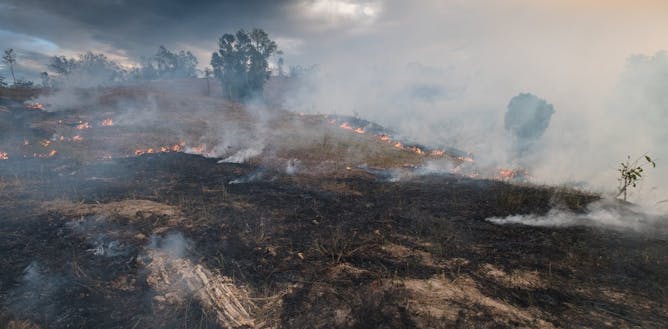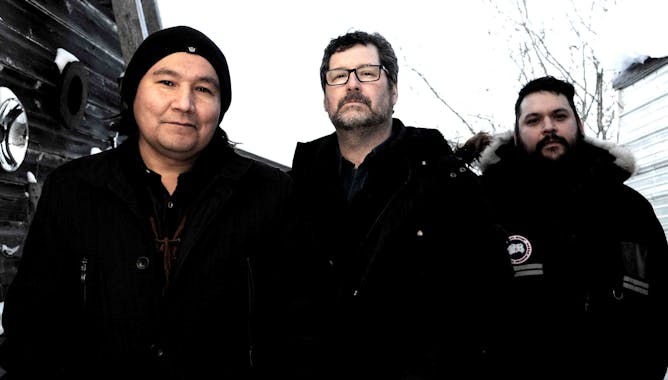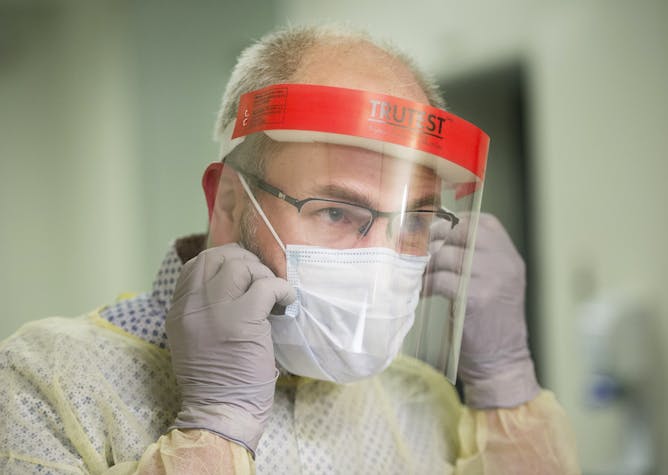|
|
|
Ban on conversion therapy is only a first step for LGBTQ+ youth
|
|
When David J. Kinitz was 16 years old, he self-enrolled in conversion therapy, thinking there was no place in the world for him as a queer young person.
Today in The Conversation Canada, Kinitz, who is now a PhD student at the University of Toronto, talks about the harmful impact of the ideas behind conversion therapy, a widely discredited practice that aims to change the sexual orientation, gender identity or expression of LGBTQ+ people.
Kinitz says the federal government’s introduction of a bill to ban conversion therapy is just the first step to eradicating the terrible homophobic messages surrounding LGBTQ+ youth.
The Conversation has just launched a weekly international roundup of the network’s coronavirus news analysis. Each week, a health editor from one of our eight editions will bring you a carefully chosen selection of expert content relating to the latest COVID-19 developments.
Also today:
All the best,
|
Vinita Srivastava
Director of Journalism Innovation | Senior Editor, Culture + Society
|

|
|
Today's Featured Articles
|

The social pressures to be ‘straight’ and ‘cis’ can be overwhelming for LGBTQ+ people, especially youth. Adding conversion therapy to the criminal code of Canada is a good first step to supporting them.
(Jeremy Mcknight/Unsplash)
David J Kinitz, University of Toronto
The Trudeau government took the first step to federally ban conversion therapy — a practice intended to change sexual orientation.
|

Britain’s Royal Family, covering generations born before the Second World War and those born well after 2000, attend the 2017 Trooping of the Colour.
AP/Kirsty Wigglesworth
Sean Lyons, University of Guelph
Millennials, Gen X, Baby Boomers. These generational labels are popular because of what they mean to us, even if it's not always useful.
|

Supporters of the Wet'suwet'en hereditary chiefs who oppose the Coastal GasLink pipeline set up a support station near Gidimt'en checkpoint near Houston B.C., in January 2020.
THE CANADIAN PRESS/Jason Franson
Anna Stanley, University of Guelph
That fact that so many Canadian pension funds are tied to oil and gas companies is a deeply structural form of racialized oppression and a denial of Indigenous rights.
|

Fire cut a devastating swath through Australia in 2019-20, leaving a heavy toll of death and destruction in its wake.
(Shutterstock)
Diane Alalouf-Hall, Université du Québec à Montréal (UQAM); Caroline Bergeron, Université de Montréal; David Grant-Poitras, Université du Québec à Montréal (UQAM); Jean-Marc Fontan, Université du Québec à Montréal (UQAM)
Philanthropy in the form of financial donations is not a solution to the natural disasters caused by climate change. A new philanthropy of social change is needed.
|

Diga, frontman of the Yellowknife-based band Digawolf, says his goal is to pursue music “without having to move south.” Here, the band, nominated as Indigenous artist or group of the year, with Diga, David Dowe and Layne Rybchinski.
(Digawolf/Maia Lepage)
Marina Eckersley, University of Toronto
Three-quarters of the high-profile category Juno 2020 nominees are Ontario artists — will existing efforts to boost music development across the country change this?
|
La Conversation Canada
|

Un homme montre comment mettre un masque facial et d'autres vêtements de protection lors d'une visite d'une clinique d'évaluation du COVID-19 à Montréal, mardi le 10 mars.
La Presse Canadienne/Graham Hughes
Vandana Janeja, University of Maryland, Baltimore County
La technologie d'apprentissage machine a été la première à sonner l'alarme au sujet du nouveau coronavirus. Son succès illustre la façon dont l'IA peut prévoir les épidémies.
|
Business + Economy
|
-
Ian Crowther, Sheffield Hallam University
The prospects of the Masters of the Universe fixing this problem look seriously in doubt.
|
|
Environment + Energy
|
-
Blair Trewin, Australian Bureau of Meteorology; Pep Canadell, CSIRO
Concentrations of carbon dioxide are now 147% above pre-industrial levels, according to a definitive report by the World Meteorological Organisation released today.
|
|
|
|
| |
| |
| |
| |
| |
| |
|
|
|
|
|
|
|